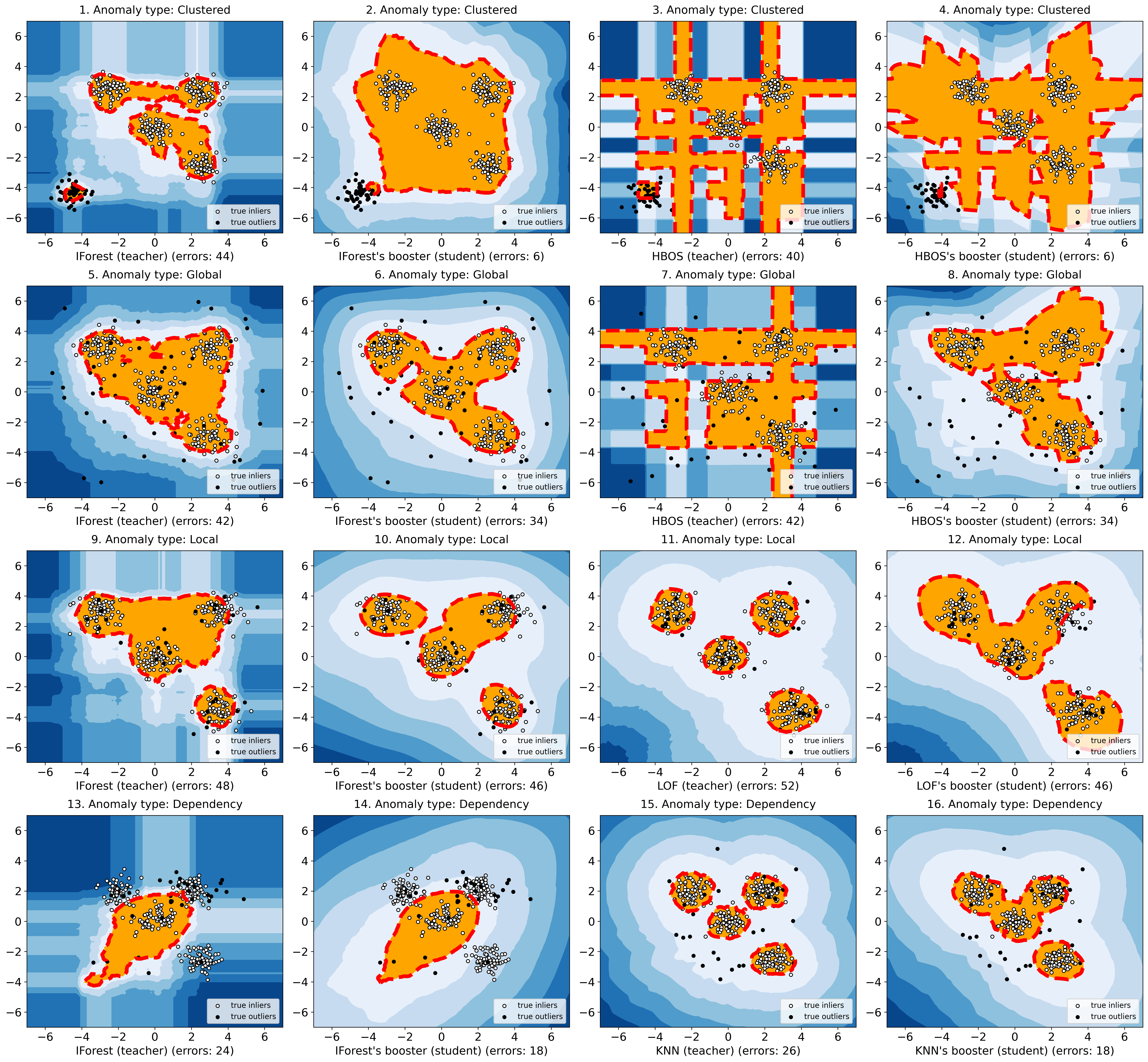ECOD: Unsupervised Outlier Detection Using Empirical Cumulative Distribution Functions
Outlier detection refers to the identification of data points that deviate from a general data distribution. Existing unsupervised approaches often suffer from high computational cost, complex hyperparameter tuning, and limited interpretability, especially when working with large, high-dimensional datasets. To address these issues, we present a simple yet effective algorithm called ECOD (Empirical-Cumulative-distribution-based Outlier Detection), which is inspired by the fact that outliers are often the "rare events" that appear in the tails of a distribution. In a nutshell, ECOD first estimates the underlying distribution of the input data in a nonparametric fashion by computing the empirical cumulative distribution per dimension of the data. ECOD then uses these empirical distributions to estimate tail probabilities per dimension for each data point. Finally, ECOD computes an outlier score of each data point by aggregating estimated tail probabilities across dimensions. Our contributions are as follows: (1) we propose a novel outlier detection method called ECOD, which is both parameter-free and easy to interpret; (2) we perform extensive experiments on 30 benchmark datasets, where we find that ECOD outperforms 11 state-of-the-art baselines in terms of accuracy, efficiency, and scalability; and (3) we release an easy-to-use and scalable (with distributed support) Python implementation for accessibility and reproducibility.
PDF Abstract


